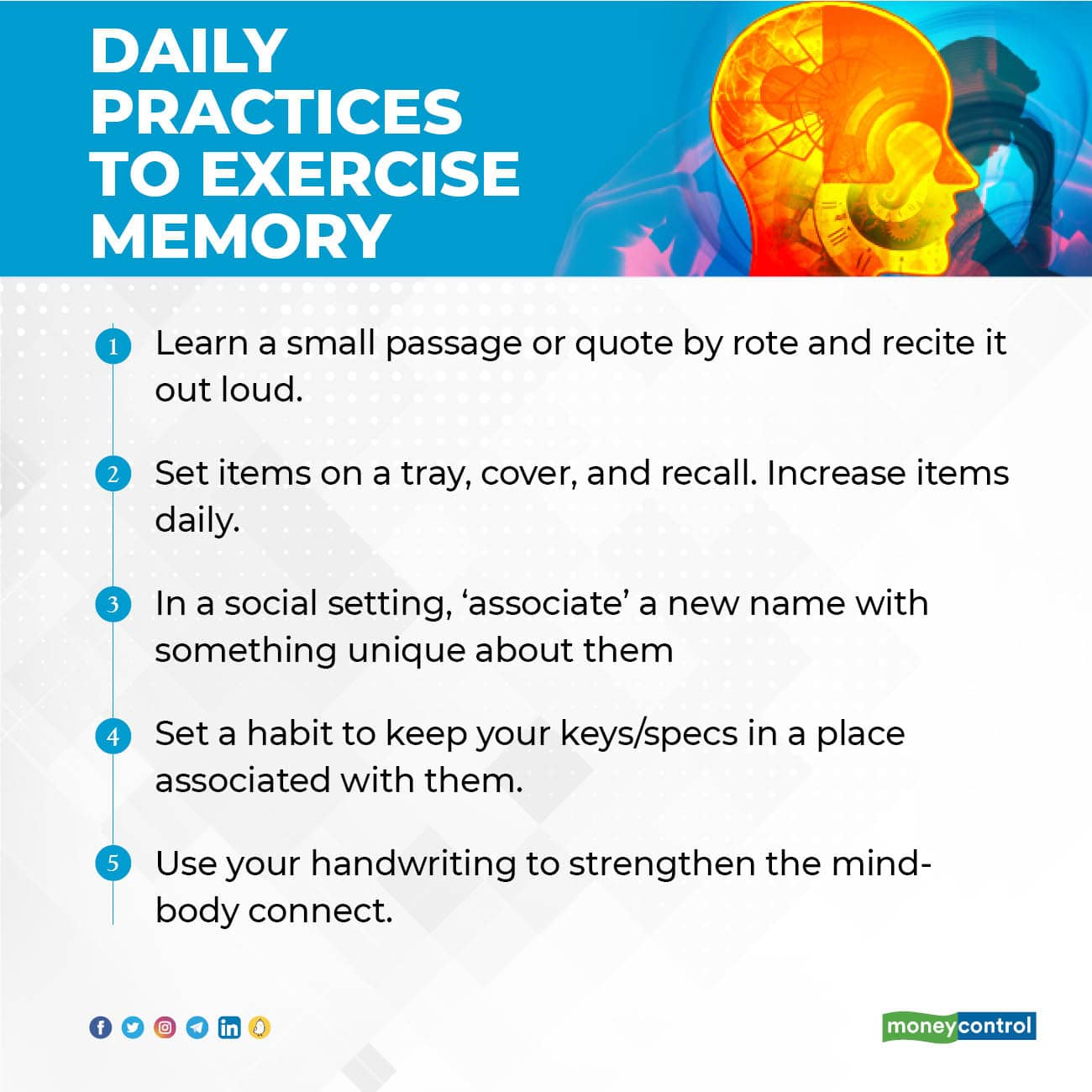



Note to readers: Healing Space is a weekly series that helps you dive into your mental health and take charge of your wellbeing through practical DIY self-care methods.
It creeps up on you, the small things you forget, the keys, that pen, until one day it’s ‘where did I put down my teacup?’ and you find it in the microwave, and then it’s a pot that sat on a flame too long. Research tells us memory does become choppier as we age, but there are different kinds of memory. Episodic memory (“what was the name of that restaurant we went to last week?”), and working memory (“I don’t have a pen just tell me the cell number, I’ll save it after the call ends”) decline faster than other kinds -  primary, procedural, etc. Our memory is also declarative (I remember that shirt you were wearing on your birthday last year) or non-declarative (driving the route to work when you’re on the phone). A number of factors tend to influence these, ranging from neurochemical to structural brain changes, and at times these changes can affect cognitive function.
primary, procedural, etc. Our memory is also declarative (I remember that shirt you were wearing on your birthday last year) or non-declarative (driving the route to work when you’re on the phone). A number of factors tend to influence these, ranging from neurochemical to structural brain changes, and at times these changes can affect cognitive function.
These changes occur in two ways: brain reserve and cognitive reserve; i.e., individual differences in the brain and individual differences in how we process tasks and data. The latter, our cognitive reserve is something we can actively manipulate. Lifestyle and environmental factors do influence how we remember in our old age, but those are more likely to be strengthened by what we have done much earlier, in adolescence or middle age. This has less to do with education, and more to do with habit-building, practice and skill exercise.
For instance, your grandmother may have recited a 1,000-verse prayer every morning from rote even if she was ‘uneducated’, while many 15-year-olds today would have trouble learning to recite without a mistake if asked to. The difference is attention, mental stimulation, social stimulation and a host of other factors. When our memory is exercised, physically, mentally, and socially, it improves. For instance, the more often you hang out with a group, the more your working memory is summoned to put into action names, numbers, or details of previous conversations. Simply, the less you socialize, the less you will remember to use these details you once had stored away in the long-term memory.
Exercising the memory physically doesn’t only have to be high intensity exercise, body work like tai chi and yoga have great impact on memory by using slow, repetitive, and focused movements that require you to co-ordinate the body with new and evolving patterns and motions. While most of us had memory games, activities or studies as children in school, learning multiplication tables and making them declarative by reciting them (same with chanting), we stop as we enter adulthood. Stimulating mental activity consciously is something we can easily do on a daily basis, to help keep the memory agile.
Memories are catalogued in different parts of the brain, by sensory input. For instance, you will remember the smell of your mother’s kheer or texture more easily than you will its recipe, even if she’s shared it with you many times. What the brain does is it puts these pieces together like a puzzle - words, texture, smell, taste, emotion - and recalls the whole. It does this by building associations. When memory begins to decline, the brain’s other associations compensate. This is why your ageing mother now refers to your friend as ‘the one who got divorced’. Her brain has built an association with an event that left an impact and that becomes the dominant association that gets recalled when the name is forgotten. Building associations helps us tide over memory decline. When you’re trying to remember something, focus on observing different sensory aspects of it. You’ll remember it better.
Whatever age you are at, stimulating memory can be done by playing memory games, puzzles, solving riddles, or setting your daily practice of giving yourself something to memorize or recite every day. While repetition is a great strengthener, widening the range of things you have to remember stimulates new ways of learning and retaining information, so new street names, associated with a friend’s house, or just meeting a new acquaintance and retaining some information about them as you save their number is also a stimulation. Instead of decrying our memory decline, it is important to start using the aspects we have and strengthen them.

Discover the latest Business News, Sensex, and Nifty updates. Obtain Personal Finance insights, tax queries, and expert opinions on Moneycontrol or download the Moneycontrol App to stay updated!
Find the best of Al News in one place, specially curated for you every weekend.
Stay on top of the latest tech trends and biggest startup news.